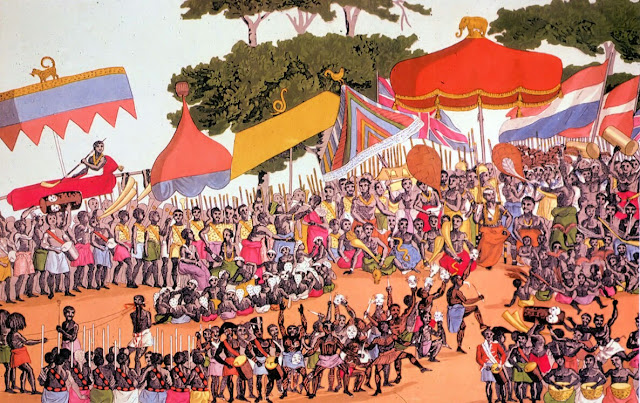 |
| A fancy wig does not a gentleman make. |
The Hallmark of the Social Climber
Nothing so blatantly proclaims a woman climber as the repetition of prominent names, the owners of which she must have struggled to know. Otherwise, why so eagerly boast of the achievement? Nobody cares whom she knows--nobody that is, but a climber like herself. To those who were born and who live, no matter how quietly, in the security of a perfectly good ledge above and away from the social ladder's rungs, the evidence of one frantically climbing and trying to vaunt her exalted position is merely ludicrous.
All thoroughbred women, and men, are considerate of others less fortunately placed, especially of those in their employ. One of the tests by which to distinguish between the woman of breeding and the woman merely of wealth, is to notice the way she speaks to dependents. Queen Victoria's duchesses, those great ladies of grand manner, were the very ones who, on entering the house of a close friend, said "How do you do, Hawkins?" to a butler; and to a sister duchess's maid, "Good morning, Jenkins."
A Maryland lady, still living on the estate granted to her family three generations before the Revolution, is quite as polite to her friends' servants as to her friends themselves. When you see a woman in silks and sables and diamonds speak to a little errand girl or a footman or a scullery maid as though they were the dirt under her feet, you may be sure of one thing; she hasn't come a very long way from the ground herself. — Emily Post, 1922
Etiquette Enthusiast, Maura J Graber, is the Site Moderator and Editor for the Etiquipedia© Etiquette Encyclopedia
























